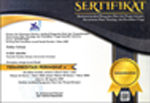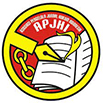- Focus and Scope
- Section Policies
- Peer Review Process
- Publication Frequency
- Open Access Policy
- Archiving
- Publication Ethics
- Article Processing Charges
Focus and Scope
Jurnal Simbur Cahaya adalah Jurnal Fakultas Hukum Universitas Sriwijaya yang menerbitkan sejumlah artikel dua kali per tahun, di bulan Juni dan Desember. Tulisan yang dihasilkan ada berbahasa Indonesia dan berbahasa Inggris, lebih dari 60 artikel sudah dipublikasikan. Semua penulis merupakan mereka yang bekecimpung di dunia praktik, akademisi, mahasiswa hingga peneliti yang fokus di bidang kajian hukum. Jurnal Simbur Cahaya tidak terbatas hanya pada penelitian normatif saja melainkan penelitian empiris dan socio legal studies juga dapat dipublikasikan di jurnal ini, kajiannya pun tidak hanya berorientasi pada bidang Hukum Pidana, Hukum Perdata/Hukum Bisnis, Hukum Administrasi Negara, Hukum Tata Negara, dan Hukum Internasional saja melainkan kajian hukum dengan isu dan perkembangan hukum secara kontemporer pun dapat diterbitkan di dalam jurnal ini.
Section Policies
Articles
Peer Review Process
Simbur Cahaya will publish the only paper strictly following Simbur Cahaya guidelines and manuscript preparation. Those papers are read by editorial members (upon the field of specialization) and will be screened by Managing Editor to meet necessary criteria of Simbur Cahaya publication. Manuscripts will be sent to two peer-reviewers based on their historical experience in reviewing the manuscript or based on their field of specialization. Simbur Cahaya has reviewing forms in order to keep the same items reviewed by two reviewers. Then the editorial board will make a decision upon the reviewers' comments or advice. Reviewers will give their assessment on originality, clarity of presentation, contribution to the field/science, Simbur Cahaya has four kinds of decisions:
- Accepted, as it is
- Accepted by Minor Revisions (let authors revised with stipulated time)
- Accepted by Major Revisions (let authors revised with stipulated time)
- Rejected (generally, on grounds of the outside of scope and aim, major technical description problems, lack of clarity of presentation)
For checking Plagiarism, Simbur Cahaya Editorial Board will screen plagiarism using iThenticate or Turnitin Program maximum 30%. If it is found plagiarism indication, the editorial board will reject the manuscript immediately.
Before publishing, it is required to obtain written confirmation from authors in order to acquire copyrights for papers published in the journal. Authors must sign the Transfer Copy Right form as follows: The undersigned hereby transfer any and all rights in and to the paper including without limitation all copyrights to Simbur Cahaya. The undersigned hereby represents and warrants that the paper is original and that he/she is the author of the paper, except for material that is clearly identified as to its original source, with permission notices from the copyright owners where required. The undersigned represents that he/she has the power and authority to make and execute this assignment. This agreement is to be signed by at least one of the authors who have obtained the assent of the co-author(s) where applicable.
Publication Frequency
Simbur Cahaya terbit 2 (dua) kali dalam satu tahun, di bulan Juni dan Desember.
===
Simbur Cahaya published bi-annually, every June and December.
Open Access Policy
Simbur Cahaya memberikan akses terbuka kepada para pembaca dan para peneliti sebagai cara untuk mendukung perkembangan ilmu pengetahuan.
Archiving
This journal utilizes the LOCKSS system to create a distributed archiving system among participating libraries and permits those libraries to create permanent archives of the journal for purposes of preservation and restoration. More...
Publication Ethics
PUBLICATION ETHICS AND PUBLICATION MALPRACTICE STATEMENT
Simbur Cahaya (SC) is a peer-reviewed journal published by Faculty of Law, Sriwijaya University. This journal is available in print and online and highly respects the publication ethics and avoids any type of plagiarism. This statement explains the ethical behavior of all parties involved in the act of publishing an article in this journal, including the author, the editor-in-chief, the editorial board, the peer-reviewers and the publisher (Faculty of Law, Sriwijaya University). This statement is based on COPE’s Best Practice Guidelines for Journal Editors.
Ethical Guideline for Journal Publication
The publication of an article in a peer-reviewed journal of SC is an essential building block in the development of a coherent and respected network of knowledge. It is a direct reflection of the quality of the work of the authors and the institutions that support them. Peer-reviewed articles support and embody the scientific method. It is, therefore, important to agree upon standards of expected ethical behavior for all parties involved in the act of publishing: the author, the journal editor, the peer-reviewer, the publisher and the society.
Faculty of Law, Sriwijaya University as publisher of SC takes its duties of guardianship over all stages of publishing seriously and we recognize our ethical behavior and other responsibilities. We are committed to ensuring that advertising, reprinting or other commercial revenue has no impact or influence on the editorial decisions. In addition, the Faculty of Law, Sriwijaya University and Editorial Board will assist in communications with other journals and/or publishers where this is useful and necessary.
Publication decisions
The editor of the Simbur Cahaya is responsible for deciding which of the articles submitted to the journal should be published. The validation of the work in question and its importance to researchers and readers must always drive such decisions. The editors may be guided by the policies of the journal's editorial board and constrained by such legal requirements as shall then be in force regarding libel, copyright infringement and plagiarism. The editors may confer with other editors or reviewers in making this decision.
Fair play
The editor at any time evaluate manuscripts for their intellectual content without regard to race, gender, sexual orientation, religious belief, ethnic origin, citizenship, or political philosophy of the authors.
Confidentiality
The editor and any editorial staff must not disclose any information about a submitted manuscript to anyone other than the corresponding author, reviewers, potential reviewers, other editorial advisers, and the publisher, as appropriate.
Disclosure and conflicts of interest
Unpublished materials disclosed in a submitted manuscript must not be used in an editor's own research without the express written consent of the author.
Duties of Reviewers
Contribution to Editorial Decisions. Peer review assists the editor in making editorial decisions and through the editorial communications with the author may also assist the author in improving the paper.
Promptness. Any selected referee who feels unqualified to review the research reported in a manuscript or knows that its prompt review will be impossible should notify the editor and excuse himself from the review process.
Confidentiality. Any manuscripts received for review must be treated as confidential documents. They must not be shown to or discussed with others except as authorized by the editor.
Standards of Objectivity. Reviews should be conducted objectively. Personal criticism of the author is inappropriate. Referees should express their views clearly with supporting arguments.
Acknowledgement of Sources. Reviewers should identify relevant published work that has not been cited by the authors. Any statement that an observation, derivation, or argument had been previously reported should be accompanied by the relevant citation. A reviewer should also call to the editor's attention any substantial similarity or overlap between the manuscript under consideration and any other published paper of which they have personal knowledge.
Disclosure and Conflict of Interest. Privileged information or ideas obtained through peer review must be kept confidential and not used for personal advantage. Reviewers should not consider manuscripts in which they have conflicts of interest resulting from competitive, collaborative, or other relationships or connections with any of the authors, companies, or institutions connected to the papers.
Duties of Authors
Reporting standards. Authors of reports of original research should present an accurate account of the work performed as well as an objective discussion of its significance. Underlying data should be represented accurately in the paper. A paper should contain sufficient detail and references to permit others to replicate the work. Fraudulent or knowingly inaccurate statements constitute unethical behavior and are unacceptable.
Originality and Plagiarism. The authors should ensure that they have written entirely original works, and if the authors have used the work and/or words of others that this has been appropriately cited or quoted.
Multiple, Redundant or Concurrent Publication. An author should not in general publish manuscripts describing essentially the same research in more than one journal or primary publication. Submitting the same manuscript to more than one journal concurrently constitutes unethical publishing behavior and is unacceptable.
Acknowledgement of Sources. Proper acknowledgment of the work of others must always be given. Authors should cite publications that have been influential in determining the nature of the reported work.
Authorship of the Paper. Authorship should be limited to those who have made a significant contribution to the conception, design, execution, or interpretation of the reported study. All those who have made significant contributions should be listed as co-authors. Where there are others who have participated in certain substantive aspects of the research project, they should be acknowledged or listed as contributors. The corresponding author should ensure that all appropriate co-authors and no inappropriate co-authors are included on the paper, and that all co-authors have seen and approved the final version of the paper and have agreed to its submission for publication.
Disclosure and Conflicts of Interest. All authors should disclose in their manuscript any financial or other substantive conflict of interest that might be construed to influence the results or interpretation of their manuscript. All sources of financial support for the project should be disclosed.
Fundamental Errors in Published Works. When an author discovers a significant error or inaccuracy in his/her own published work, it is the author’s obligation to promptly notify the journal editor or publisher and cooperate with the editor to retract or correct the paper.
======================
Dr. Putu Samawati, S.H., M.H.
Editor-in-Chief
Simbur Cahaya
Faculty of Law, Sriwijaya University.
Article Processing Charges
Simbur Cahaya (SC) welcomes article submissions and does not charge Article Processing Charges (APCs) and Article Publication Fee (Free). For Libraries/Individual, can read and download any full-text articles for free of charge.
For Printed editions subscription, please contact us Simbur Cahaya.

1.png)














